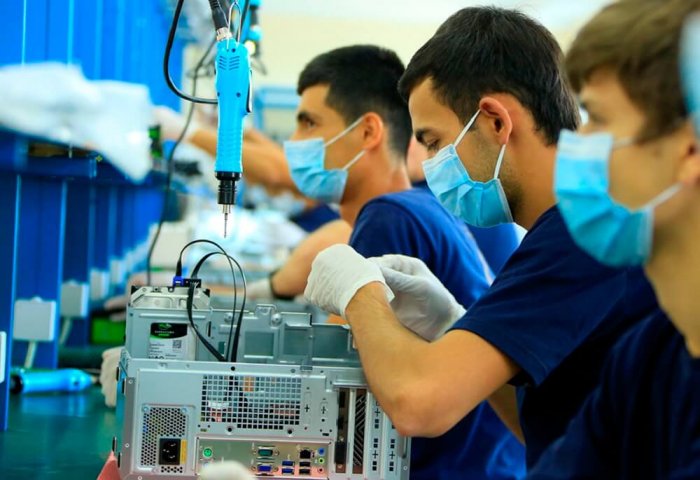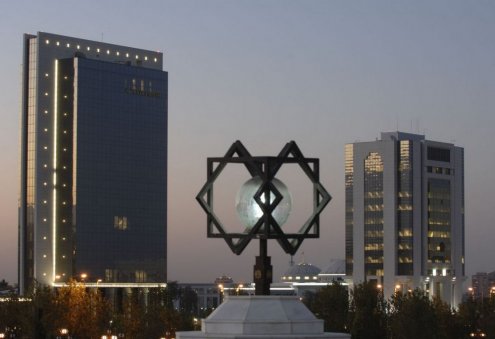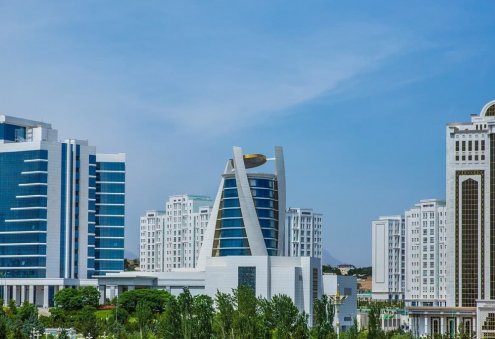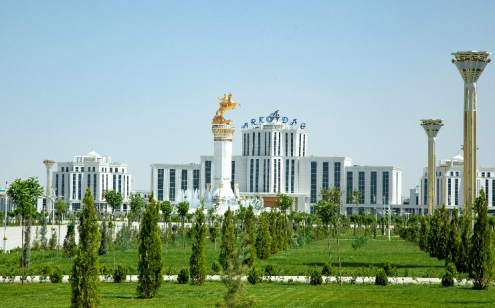Recent years in Turkmenistan have been marked by an intensification of market relations, affecting various areas, economic expert Valentin Trapeznikov said in a commentary published on CentralAsia.news website on Thursday.
He noted that one of the key aspects of the economic reform in Turkmenistan is increasing the financial stability and reliability of the banking sector, improving and integrating it into the global financial system, expanding the list of banking services based on digital technologies.
Improving pricing policy and the system of social benefits are also important areas for the further development of market relations, Trapeznikov said in the article, adding that “as the income of the population grew, the preservation of a number of unjustified benefits negatively affected the effective functioning of market relations, the rational use of resources and the pace of economic development. Therefore, a set of measures was developed to bring the level of prices for goods and services in line with their market value.”
He added that the implementation of the Concept for the creation of free economic zones in Turkmenistan until 2023 will give new impetus to the development of market relations in the country. In this regard, an important practical step was the preparation and adoption of the Law of Turkmenistan on Free Economic Zones", which defines preferential taxation conditions, especially the currency and customs regimes in the FEZ.
“The privatization processes and the dynamic development of the non-state sector of the economy contributed to significant changes in the structure of legal entities by type of ownership,” Valentin Trapeznikov said. “Thus, the share of state-owned enterprises from 2013 to 2020 decreased from 22.4% to 18.4%, while the share of private enterprises, on the contrary, increased from 65.7% to 72.3%.”
In 2013–2019 period, Turkmenistan privatized more than 500 facilities, Trapeznikov added.
Participating in the implementation of the Concept of the Digital Economy for 2019-2025, the members of the Union of Industrialists and Entrepreneurs of Turkmenistan (UIET) created an IT-Park Closed Joint-Stock Company aimed at developing small and medium-sized businesses with an innovative focus, strengthening ties between science, production and the investor, entering the international market of innovative products and the development of digital infrastructure in the country, according to the expert.
Public-private partnerships have also intensified in recent years, Trapeznikov emphasized, outlining the construction of the Ashgabat-Turkmenabat highway, the 14th, 15th and 16th phases of development in Ashgabat, the administrative center of Ahal velayat, the facilities along the Turkmen Lake Altyn Asyr, the International Airport in Lebap and the Kerky airport among the major projects, the implementation of which involves domestic businesses.
He also noted that the non-state sector clearly dominates the retail trade in the country, with its 93.9% share in retail turnover in 2020 versus 6.1% of the state.
Tasks for further legislative support of private business are regularly considered at the government meetings held by President of Turkmenistan, Trapeznikov said, adding that these tasks include support for entrepreneurial initiatives of citizens, stimulation of investment activity, privatization and denationalization of state property, public-private partnerships and the creation of non-state banks. The opening of a higher educational institution for the training of highly qualified personnel for the private sector is also expected in Turkmenistan.
According to the expert, dynamic socio-economic development of Turkmenistan is almost impossible to consider without taking into account such an important factor as the further activation of market relations and the manifestation of their various modern forms.


















